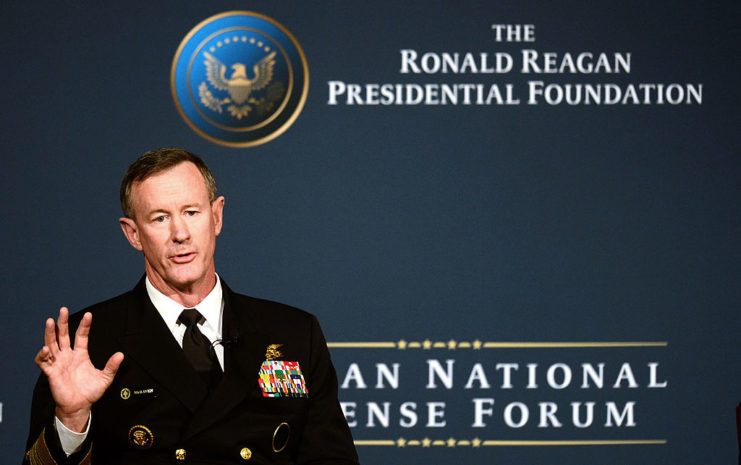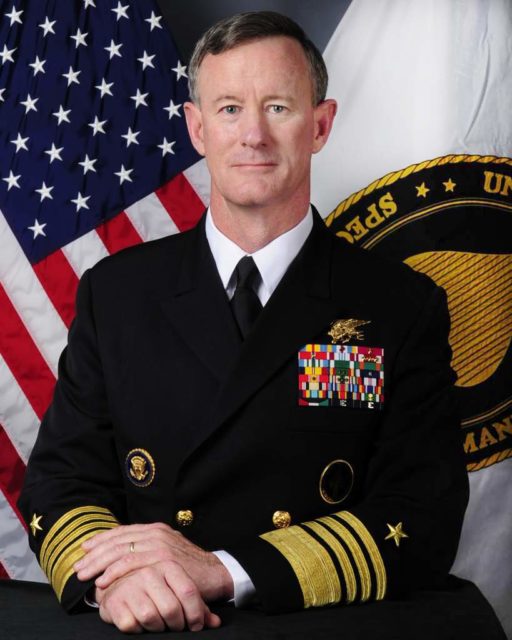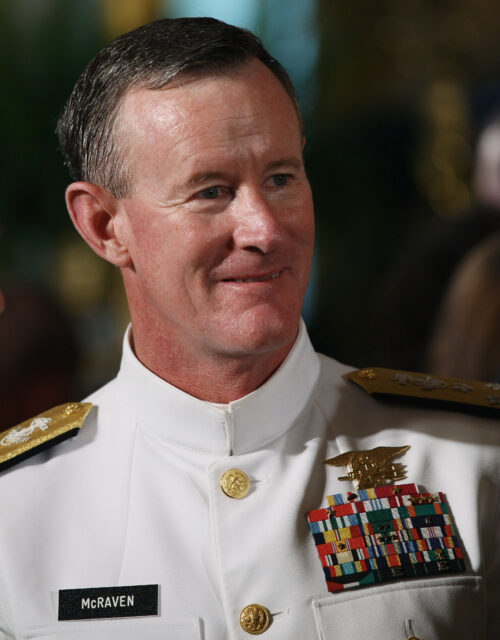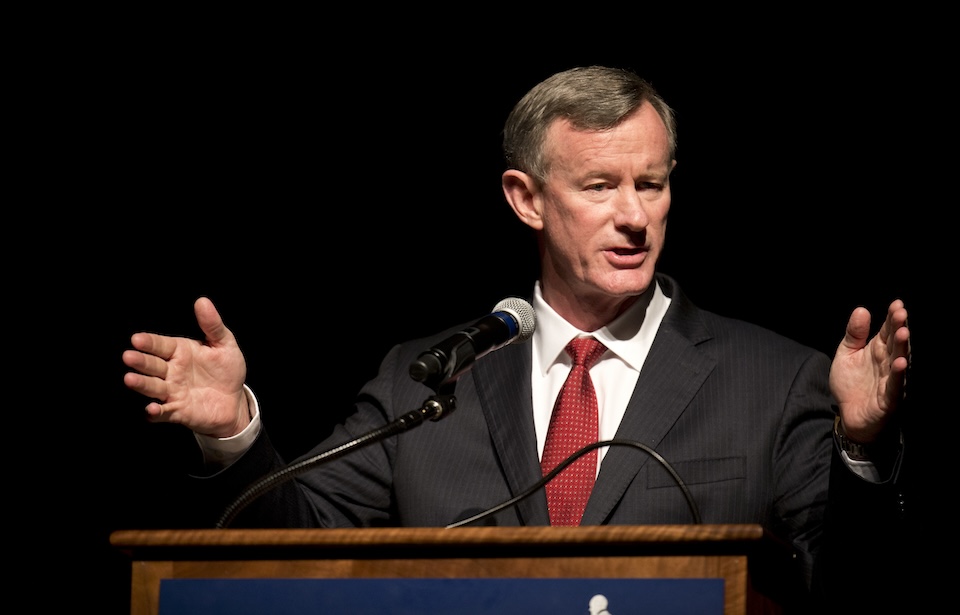William McRaven’s upbringing

William McRaven’s path to a military career seemed destined from the beginning. Born in Pinehurst, North Carolina, he was raised there while his father, Claude, was stationed at Pope Army Airfield. A World War II-era Spitfire pilot and former NFL player, his father likely influenced McRaven’s choice of career.
While he was in elementary school, McRaven moved to Texas, where he became heavily involved in track and field. He later participated in the Navy ROTC program. In 1977, he graduated from college with a Bachelor’s Degree in journalism.
McRaven’s early military career

McRaven began his military career right after college by joining the Navy SEAL training program. He completed the intense training and, after a six-month trial, earned his place in the elite unit.
In the early 1980s, he was stationed in Dam Neck, Virginia, where he served under Richard Marcinko, the first commander of SEAL Team 6. However, the two didn’t work well together, and McRaven was eventually removed from the team. Marcinko later said, “He was a bright guy, but he didn’t like my rude and crude way. If I was a loose cannon, he was too rigid. He took the ‘special’ out of special warfare.”
Despite that setback, McRaven’s career continued to advance. He later became a task unit commander during the Persian Gulf War and went on to earn a Master of Arts degree from the Naval Postgraduate School in 1993.
Broken in half

While McRaven was well on his way to a storied military career, it almost didn’t happen. He told NPR in 2019 about a ’01 training exercise where he was nearly killed after being hit in the air by another parachutist.
“I kind of tumble through the parachute. But I’m stunned,” he said. “I’m not exactly sure what’s happened. I don’t know whether I’ve been knocked unconscious. I don’t know whether I’ve been dazed. And now I’m tumbling out of control towards the ground.”
He continued, “Because I was tumbling, the pilot chute came out and wrapped around one leg, and then another part of the parachute called the riser came out and wrapped around my other leg. So now I am tangled up in my parachute, falling towards the ground. The good news is, as I fell a couple hundred feet or a thousand feet or so, the parachute finally opened. The bad news is, when a parachute opens, it blossoms.”
The accident resulted in a broken pelvis for McRaven. A few months later, 9/11 happened. At this time, he was still recovering from his injuries.
Operation Neptune Spear

In 2011, McRaven, a vice admiral in the US Navy and head of the Pentagon’s Joint Special Operations Command, was called to CIA Director Leon Panetta’s office for a briefing on Osama bin Laden. Panetta revealed that the agency had located bin Laden’s compound and tasked McRaven with planning and leading the mission to eliminate him. Renowned for his expertise in coordinating covert operations, McRaven was entrusted with full authority over the operation by Panetta.
McRaven’s plan succeeded, and SEAL Team 6 eliminated bin Laden on May 2, 2011. The operation earned McRaven widespread acclaim, and he was recognized as a finalist for Time‘s Person of the Year.
McRaven formally retired in 2014

On September 1, 2014, McRaven officially retired from the military after years of serving as the Bull Frog—the longest-serving active-duty Navy SEAL. After his service, he became the Chancellor of his alma mater, the University of Texas. In retirement, McRaven has stayed active, writing several books and making occasional appearances on cable news programs.
He was considered for the role of Secretary of Defense under President Joe Biden, but the position ultimately went to Lloyd Austin III.
